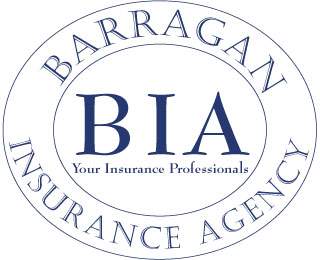 Get free home insurance quotes with the best insurance rates on Low Cost, Affordable, Cheap, Home Insurance. We can save you money on your home insurance if you live in Sacramento, Folsom, Chico, Redding, San Francisco, Oakland, San Jose, Long Beach, Fresno, Los Angeles, Santa Ana, Santa Barbara, Anaheim, or the San Diego areas from best rated insurance companies .
Get free home insurance quotes with the best insurance rates on Low Cost, Affordable, Cheap, Home Insurance. We can save you money on your home insurance if you live in Sacramento, Folsom, Chico, Redding, San Francisco, Oakland, San Jose, Long Beach, Fresno, Los Angeles, Santa Ana, Santa Barbara, Anaheim, or the San Diego areas from best rated insurance companies .
Click Here to get a Free Home Insurance Quote
Searching where you can find the best insurance rates on low cost affordable and cheap home insurance – Well, You’ve found it
Protect one of your most valuable assets – your home. Having the right homeowners insurance helps you keep your money where it belongs… in your pocket. We provide free home insurance quotes from the best homeowners insurance companies in the industry such as Civil Service employees (CSE), Stillwater Insurance, Fidelity Insurance, Travelers Insurance, Hartford Insurance, MetLife Insurance, GMAC Insurance, Foremost Insurance, Lloyds of London Insurance, American Reliable Insurance, American Modern Insurance, First American Specialty Insurance, Safeco Insurance, Tower Insurance, Geovera Insurance, and many more. Looking for low cost affordable cheap quick and easy home insurance. Let us do the searching from top rated home insurance companies for you.
Natural disasters and man-made accidents aren’t just a possibility, they are an eventuality. Barragan Insurance Agency invites you to think of your greatest asset…your home. There are a number of ways to trim your homeowners insurance costs. The price you pay for your home insurance can vary by hundreds of dollars.
Click Here to Get a Free Home Insurance Quote
Here are a few things to consider when buying homeowners insurance that can save you money.
- Combine your homeowner insurance and auto insurance as a package and discount your homeowners insurance by as much as 25% for insuring both your car and your home together with the same company and receive additional discounts on your auto insurance for packaging the two policies together.
- Make sure you are receiving all of the homeowners insurance discounts you deserve. Homeowners insurance discounts are often available for smoke detectors and fire alarms, burglar alarms, non-smoker, new home, preferred home builders, senior citizen, government employee, civil service, medical personnel, educators, gated community, indoor fire sprinklers, marriage, and updates to your home such as a new roof, electrical, plumbing, or heating / cooling system.
- Increase your home insurance deductible. The standard home insurance deductible is generally $1000, but many people still carry a $250 or $500 deductible. Typically, you can save about 10% on home insurance just by increasing a $500 deductible to $1000 or more.
Available Discounts:
- Package policy (auto insurance / homeowners insurance together )
- Smoke detectors, fire alarms, Central monitored burglar/ fire alarms
- Non-Smoker
- New home
- Senior citizen
- Government Employee
- Civil Service Employee, such as Law Enforcement, Fire Fighters, Teachers, PERS members
- Medical Personnel, Doctors, Nurses, Physician Assistant, Nurse Practitioner
- Educator /Teacher /STRS members (current or retired) / PERS members (current or retired)
- Gated community
- Indoor fire sprinklers
- Married
- Updates on electrical, plumbing, heating, roof
- Public Utility employees such as CalTrans employees, SMUD, PG&E, Sprint, Verizon, AT&T
- PERS members, City employee, County employee, State employee (see list of State Agencies for Eligibility), Federal employee
- Preferred home builder (check to see if your home builder is on the list)


 https://www.woundedwarriorproject.org/donate
https://www.woundedwarriorproject.org/donate